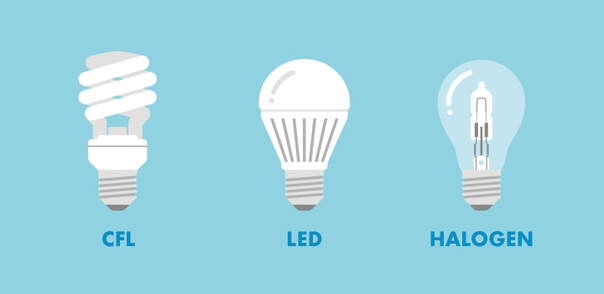|
If you're looking for a simple #stayhome project but a more long-term investment, now might be a good time to start replacing your light bulbs. Lighting accounts for 15% of a typical household’s electricity bill, so bulbs have an important role to play. These days, there are lot of different light bulbs available and we've come a long way from the traditional incandescent kind, which produced only 5% light, with the other 95% being lost as heat! Their carbon footprint was so high - producing more than 15,000,000 tonnes of carbon emissions a year - they were banned in the UK in 2018. Without a doubt, the most energy and cost efficient solution available is the LED light bulb. Switching from halogen to LED can save up to £3 per year and around 5kg of CO2 emissions PER BULB! It would cost the average UK household about £100 to replace all of their lights with LEDs but this would save about £35 a year on bills and LED bulbs can last for 25 years. That means the bulbs would pay for themselves in just under 3 years, leaving you with 22 more years to enjoy your lighting and savings. But don't just take our word for it. Below is a quick guide from Which UK on light bulb options and how much a typical 700+ lumen bulb might cost you per year if you have it on for around three hours a day. CFL annual running cost £2.04 Pros:
Halogen annual running cost £8.42 Pros:
LED annual running cost £1.71
Pros:
For more tips and information on lighting see: https://www.which.co.uk/reviews/light-bulbs/article/five-tips-for-choosing-the-right-light-bulb To see how CREW uses LED lighting in community projects, see our DRCA case study here.
0 Comments
Your comment will be posted after it is approved.
Leave a Reply. |
Follow us on social media for all our latest updates
@crewenergyldn go to a category
All
|





